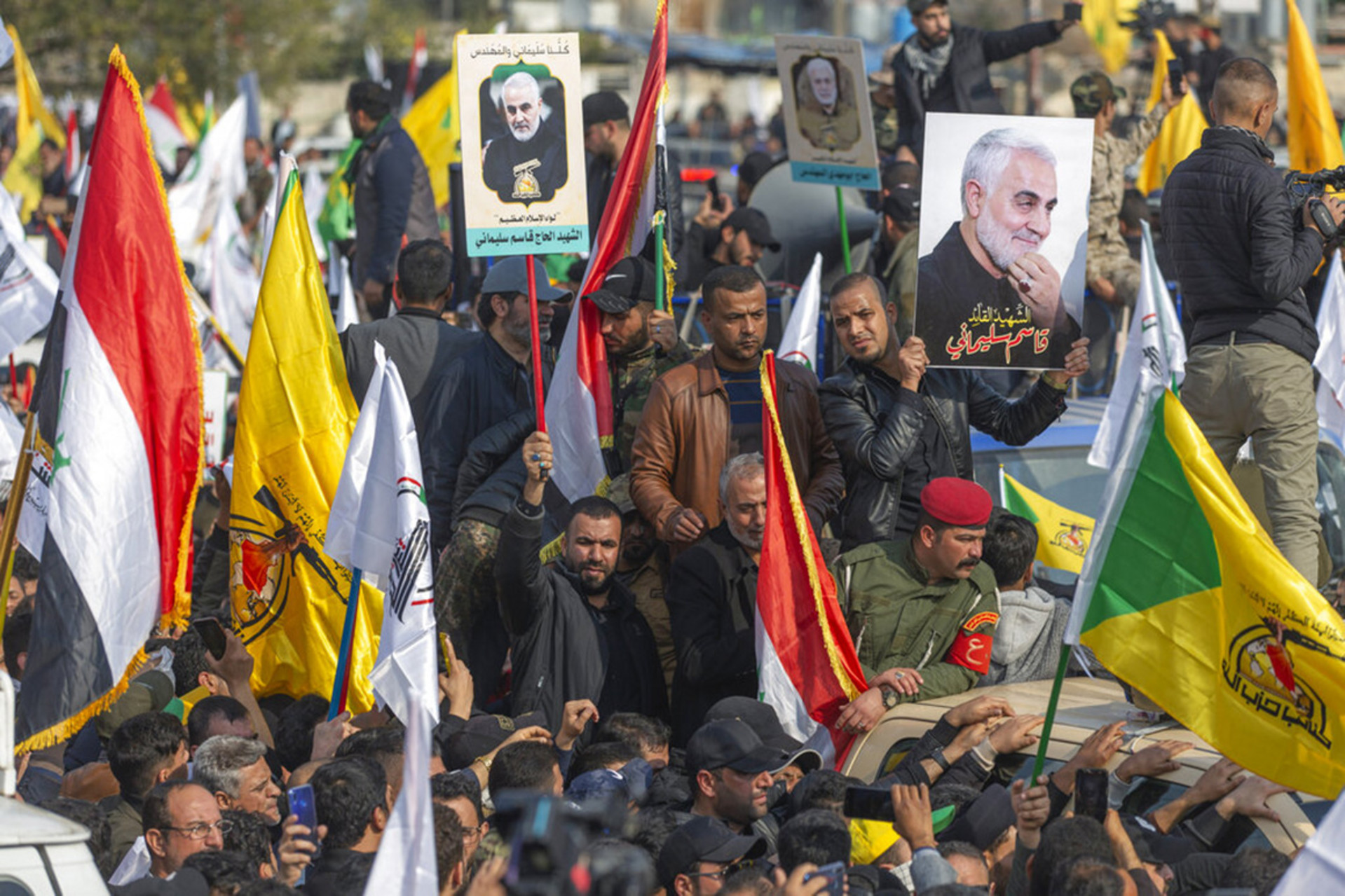Executive Summary:
The geopolitical influence of Iran continues to pose a threat to the international community and jeopardize the stability of the Middle East. The theological regime in Tehran consolidates its regional power by establishing and empowering militias in neighboring countries, such as the case with Iraq’s Popular Mobilization Forces (PMF) which has become an influential actor in the country’s politics and economics. Analysts and policymakers expected that the assassination of Qassem Suleimani, the Iranian Revolutionary Guards Quds Force Commander, and Abu Mahdi al-Muhandis, the Iraqi Commander of Popular Mobilization Committee, would impact Iran’s influence and weaken the structure of the PMF. The well-established relationship between Tehran and Baghdad questions such a conclusion, taking into account the importance of Iraq to maintain the power of Iran’s-led axis in the region.
Iraq Remains Critical in Iran’s Regional Strategy
Iran’s regional strategy has become highly dependent on Iraq, investing in this bilateral relationship since 2003. It provides the Islamic republic with a land connection to its allies in Syria and Lebanon. In terms of economics, Tehran sees a market in Iraq for Iranian goods as well as a potential market for electricity and gas exports. In addition, the expulsion of U.S. forces deployed in Iraq remains a strategic goal for Iran to protect its national security. From a historical perspective, Tehran seeks to nullify the possibility of repeating the Iraq-Iran war, in 1980, through building strong relations with Iraq and dominating its internal affairs.
The rise of the so-called Islamic State in 2014 provided Iran with an excellent opportunity to entrench its influence. In response to a call from the Iraqi government and prominent Iraqi Shite cleric Grand Ayatollah Ali al-Sistani, Iran has supported Shiite -the majority- militia groups within the framework of the PMF which gained popularity and became one of Baghdad’s major antiterrorist fighters. After the Islamic State territorial loss, a number of the PMF groups formed a political coalition called Fatah which won the 2018 parliamentary elections, becoming the secondlargest faction in the legislature. Over the past years, the PMF has integrated into Iraq’s political, security, and economic system.
PMF Structural Organization: What after the Assassination?
The assassination of Suleimani and al-Muhandis, however, has left Iran with a series of challenges that are impacting the structural organization of PMF to their core. Both of them played a critical role in leading, engineering, and implementing Iran’s regional strategy, and they successfully commanded and orchestrated a vast network of PMF’s militias. Their absence led the various networks of forces to compete, with each seeking to maintain privileges and enhance status. For instance, the Atabat (Shrine)- under Sistani’s leadership- declared its separation from the PMF in April 2020 to join the Iraqi Army and the Ministry of Defense. Another critical division took place between Kataib Hezbollah, on the one hand, and Badr and Asai’b al-Haq on the other. Ongoing speculations continued over the capability of Esmail Qaani, the new Iranian Commander of Quds Force, to lead these networks and restore the PMF’s unity. The Guardian quoted several senior Iraqi politicians, with one of them saying: “I have met him and he is not even in Suleimani’s shadow.” Another senior Iraqi figure said: “the new guy is not the same. And I am not sure he can be.” They all agreed that the Suleimani’s death “had left structural void,” which signals a
serious challenge to the viability of the PMF which has become a series of fluid and incoherent networks connected to the power structures of the Iraqi state.
Iran-Iraq Bilateral Relationship Under Raisi
The pressing question is, will Iran be able to maintain its powerful influence over the PMF’s networks of militias despite the challenges addressed above? The victory of Ebrahim Raisi, a hardline judiciary chief and close to the Supreme Leader Ayatollah Ali Khamenei, as president will highly likely strengthen Iran-backed militias not only in Iraq but across the Middle East. Iran-Iraq bilateral relations are complicated and ruled by mutual interests between the two governments, as Iranian Foreign Minister Mohamed Javad Zarif put it: “Iran-Iraq relations will not be shaken.” Ahead of the Iraqi parliamentary elections, to be held in October 2021, Prime Minister Mustafa Al-Khadimi headed to Tehran in an official visit to be the first foreign leader meeting with Iran’s Raisi since he took office in August. Although Al-Khademi had had failed attempts to curtail the influence of Iran-backed militias in Iraq, he is aware of Tehran’s weight in dynamics of regional politics and security.
Image credit: (AP Photo/Nasser Nasser)

